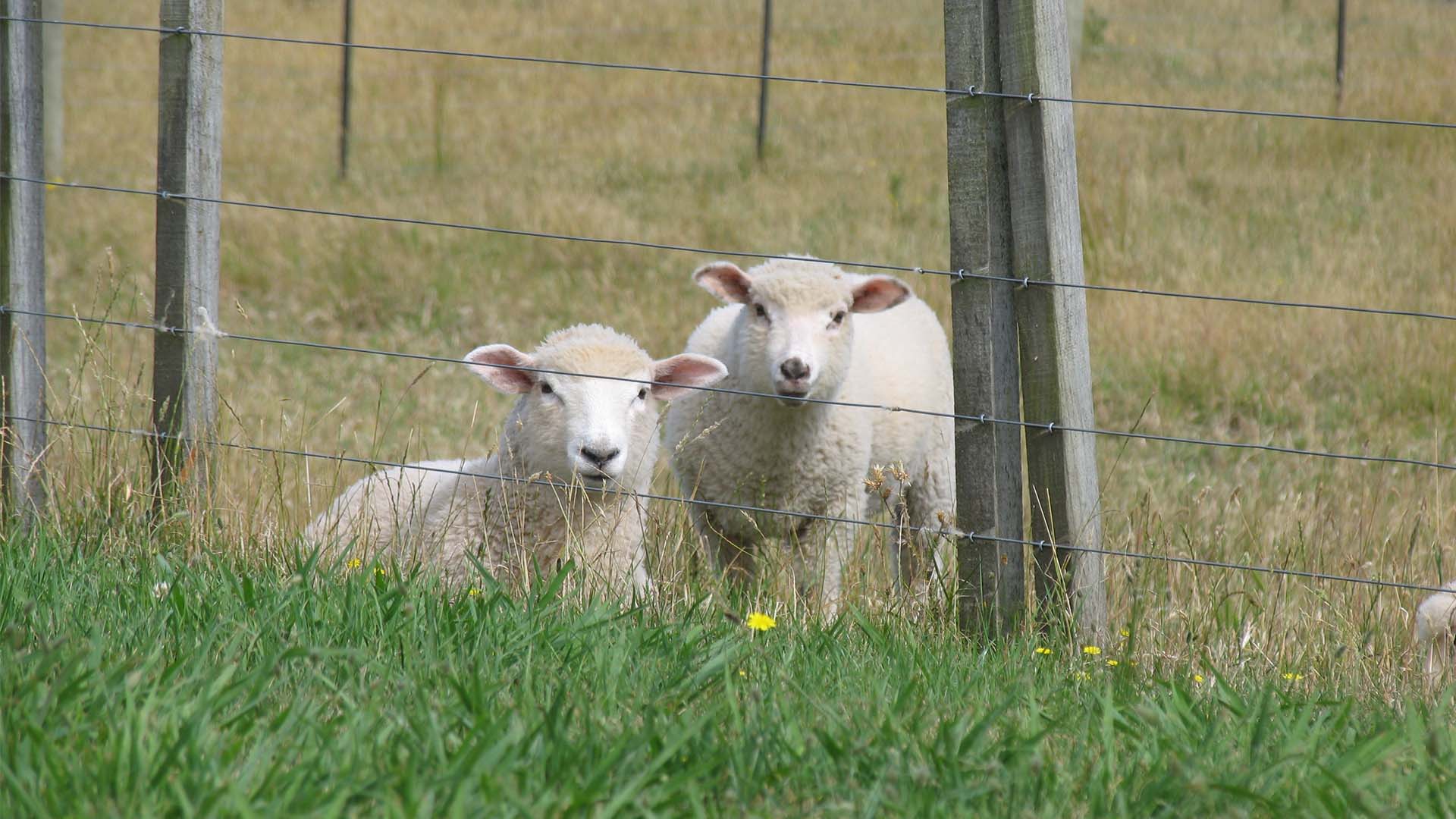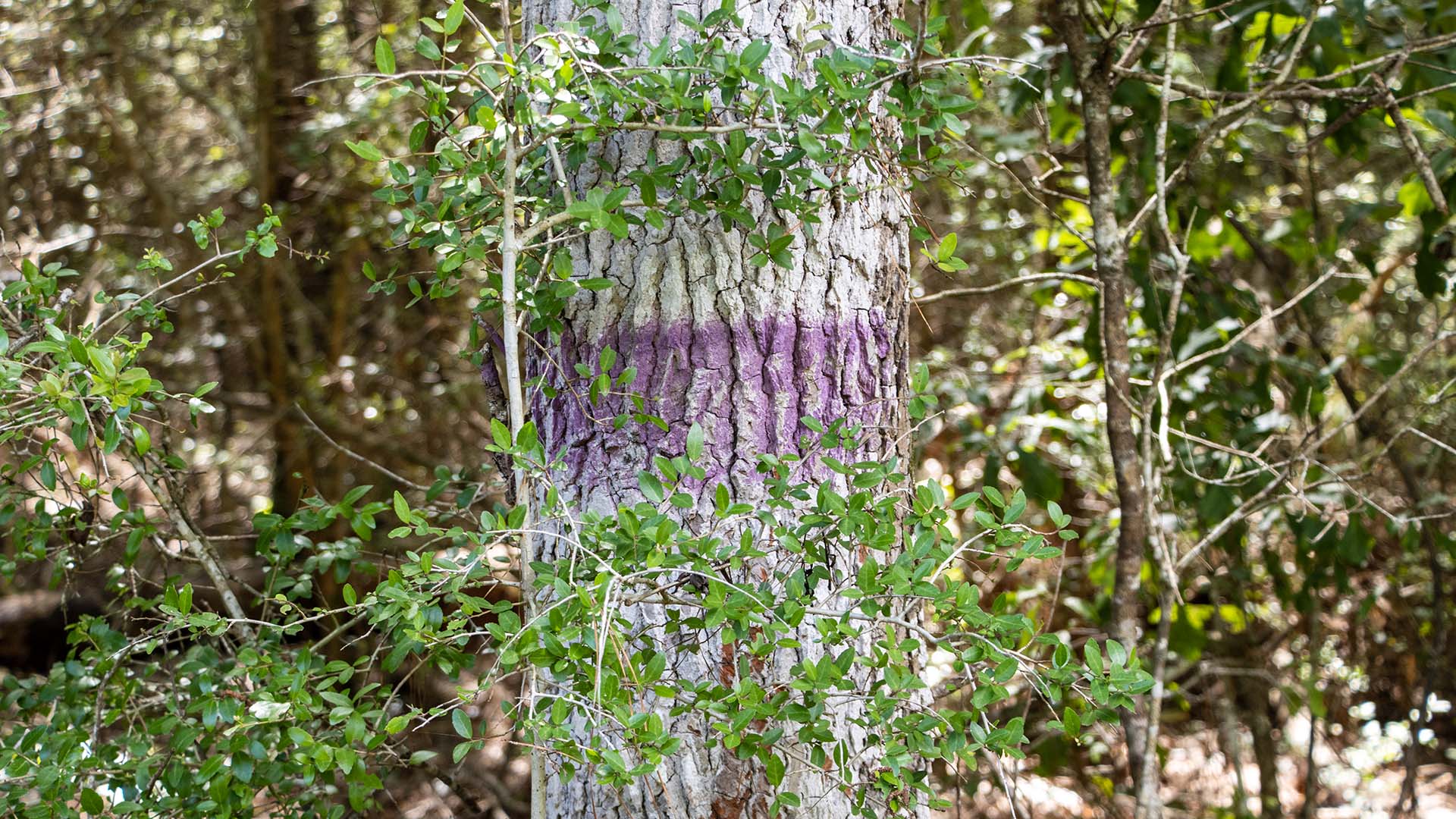
Weed pressure is one of the most common contributors to a Zareba® electric fence shorting out. Weeds are not just unsightly, but can also render your electric fence useless when they come in contact with the line. That means a particularly dense patch of weeds on your fence can lead to animals escaping and uninvited wildlife entering your pastureland.
Added Fence Load
A fence load is measured in voltage and ohms, the standard measurement of electrical resistance. A low ohm reading represents a heavy fence load, and a high ohms reading represents a light fence load (because more ohms can move through the circuit). Under optimal conditions, you want light fence load (high ohms) so that livestock are properly corrected when they come in contact with the fence.
Dense weed conditions tax your system with a heavy fence load, which is indicated by low ohm measurements. What’s happening? These plants draw voltage and amperage from the fence and channel that energy into the ground rather than deliver the energy across the length of your fence.
With that in mind, a low ohm load reading is a likely indicator that there’s a heavy presence of weeds interfering with your fence operation.
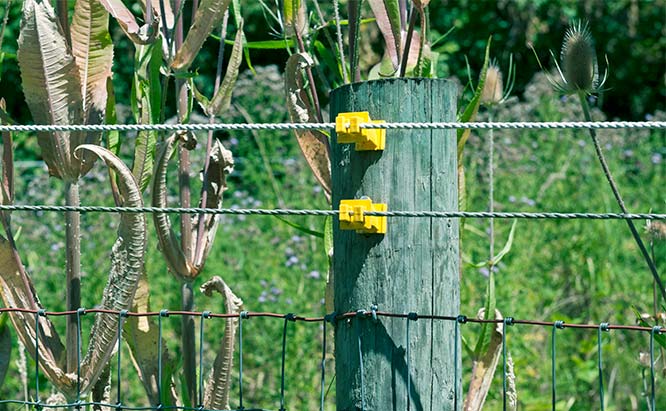 Your fence's effectiveness is compromised when too many weeds come in contact with hot wires.
Your fence's effectiveness is compromised when too many weeds come in contact with hot wires.Shorting Out
The presence of weeds on your fence line jeopardizes the effectiveness of your electric fence system. When too many weeds develop or other conditions arise (cracked insulators, sagging or broken wires, wet weather) your fence power is drained, resulting in a short. Normally, your fence will shock any creature that opts to test the fence boundary. If it’s shorted out, that “zap” won’t occur.
Low Impedance Energizers
To combat excessive weeds, use low impedance energizers, which are capable of increasing their energy output as fence load increases. As weeds touch the fence line, drawing voltage and amperage to earth, the low impedance energizer will begin to compensate for the power drain by releasing stored energy (joules). This boost overcomes the voltage loss caused by the weeds, and pushes energy to the rest of fence line. As long as the wire remains in contact with the energizer, the energy can flow past vegetation to keep the fence hot.
Zareba® low impedance energizers are specifically designed to pump out more energy when the fence is registering low ohms. This allows our energizers to produce their maximum energy output when it is needed, rather than all the time.
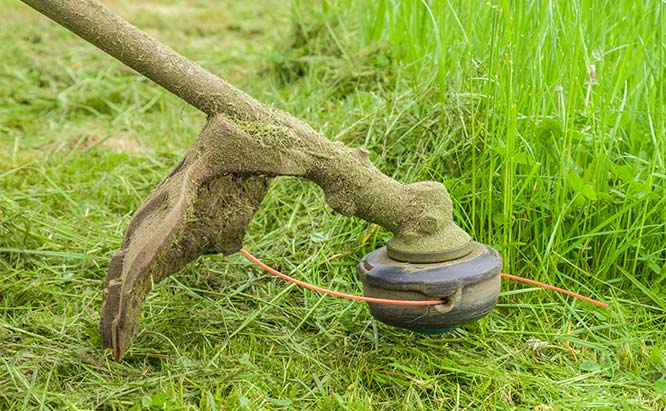 One simple solution to reducing weed load on an electric fence is to regularly trim weeds growing along the fence line.
One simple solution to reducing weed load on an electric fence is to regularly trim weeds growing along the fence line.How to Limit Weeds on Your Fence
While a low impedance charger will help to prevent shorts due to weed intrusion, controlling weeds is still important. By properly controlling weeds, your electric fence system will be less likely to fail. Some weed control methods you might consider are:
- TRAFFIC PATTERNS -- Reduce foot traffic from animals along your fence lines by developing cowpaths and other attractants along the interior of the paddock. When soil along a fence line gets compacted, grass has trouble growing and provides opportunities for weeds to grow.
- LET THE GRASS GROW -- Leave grass along fence lines at three inches or higher. While it may seem counter-intuitive, this can help weaken weeds by shading them out.
- REGULAR MAINTENANCE -- Pull, mow or trim the vegetation near the fence line and posts to keep weed levels under control. Maintain a regular trimming schedule through the growing season.
- SPECIALTY MOWER – Invest in a fence mower designed for clearing fence lines of weeds and grass. Definitely keep this option in mind if you have a large fence line (more than a few miles) to maintain.
- SPECIALTY WEEDER -- Flame weeders are another option. These hand-held devices apply sufficient heat to a plant so that their cells burst and denature leaf proteins. Probably not for use in drought-prone areas!
- BLOCK WEEDS -- Install a narrow band of weed cloth directly under the fence line and then cover that with gravel. This will block weed growth for years to come.
- HERBICIDE OPTION -- In extreme cases, herbicide application may be necessary to prevent weed growth. However, it should be understood this option is only a short-term solution and should be a last resort. Proper knowledge of handling and application of herbicides is necessary when using this method.
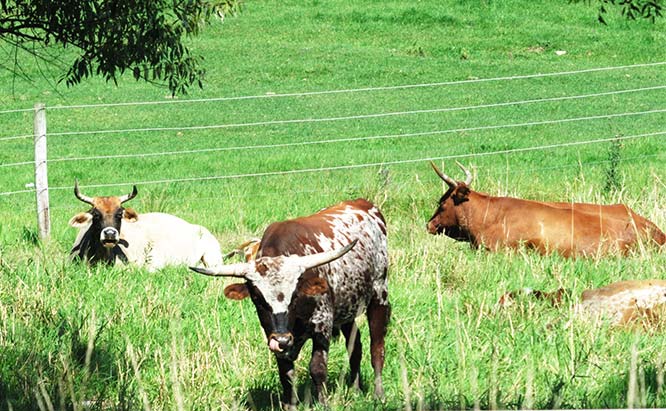 Low Impedance fence chargers can help battle the added load of weeds. In response to the energy drain created by plants touching hot wires, these chargers increase their output to electrify the entire fence.
Low Impedance fence chargers can help battle the added load of weeds. In response to the energy drain created by plants touching hot wires, these chargers increase their output to electrify the entire fence.What Are Your Weed-fighting Tips?
Which methods do you use to control weeds along fence lines on your farm or ranch? Tell us about your efforts when you visit Zareba® on Facebook. You can also subscribe to the Zareba® E-Newsletter for notifications about new products and links to new articles.
You can learn more about fencing at Zareba's Learning Center and with our other articles:
- The different types of electric fence and what's best for your animals.
- Keep your cattle healthy and happy through the winter.


